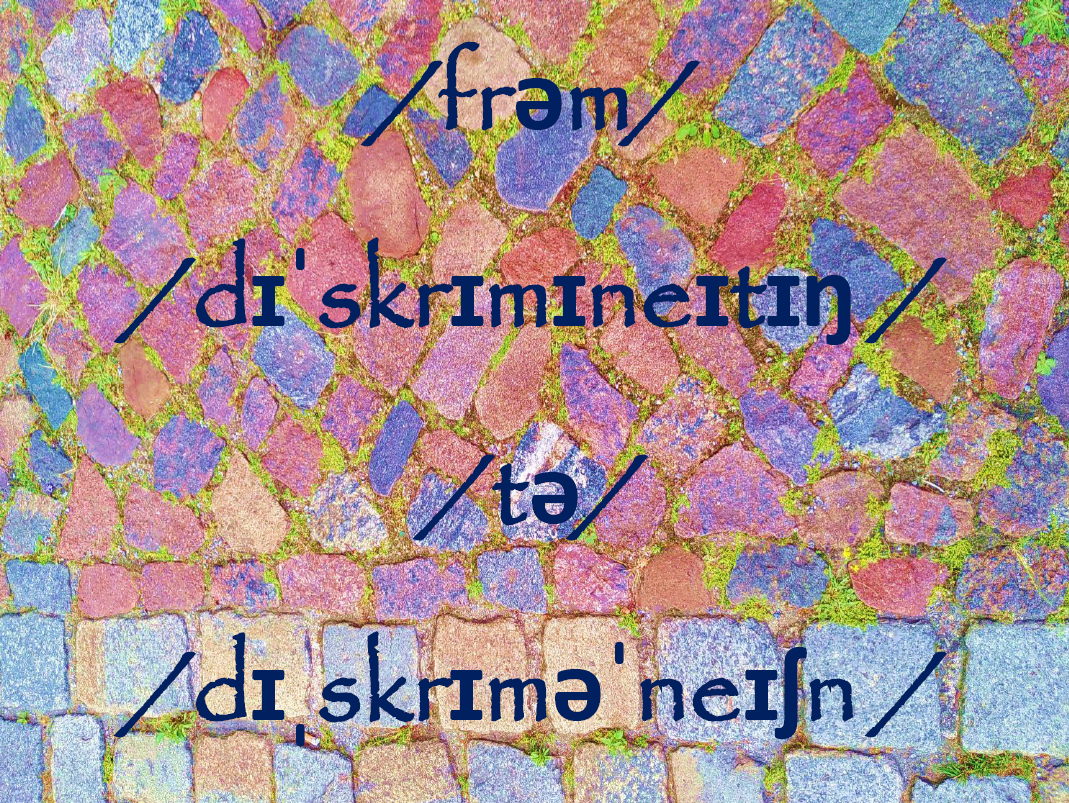International Online Conference: From Discriminating to Discrimination The Influence of Language on Identity and Subjectivity
Discrimination is the distinction between discriminatory stimuli, followed by discriminatory reactions. A discriminatory reaction is therefore the response based on a value-judgement (conscious/subconscious), or an antecedent that could be perceived as being unequal in nature or intent. Within this unequal/equal treatment many things are entailed/understood; things such as social disadvantages can result in social isolation or acceptance. In the sense of a formal and abstract definition, discrimination can first be understood as the use of categorical, i.e. supposedly clear and separable distinctions for the establishment, justification and the setting of a stage for potentially unequal treatment which can result in social disadvantages. In the legal sense, discrimination is a difference or perceived difference in treatment of a person on the basis of one (or more) legally protected categories (i.e. race, gender, ethnicity, sexuality, religion) without any objective reasons justifying this difference in treatment. These discrimination categories are linguistically acquired and are a linguistic product and in turn linguistically mediated. Linguistic processes therefore play a central role with regard to discrimination, which are often scientifically underestimated.
This marks the framework for the International Conference "From Discriminating to Discrimination – The Influence of Language on Identity and Subjectivity" hosted by the Chair of Educational Sciences at the Brandenburg University of Technology (BTU) in cooperation with the São Paulo State University (UNESP).
The concern of the conference is the attempt to answer the following questions from the viewpoint of four speakers from three continents and their unique professional perspectives:
- What are linguistic prerequisites for discrimination?
Maître de Conférences Christelle Dodane, Ph.D.
Department of Phonetics and Language Acquisition, Paul Valéry Montpellier 3 University, Montpellier, France - How are linguistic prerequisites conveyed in regards of subjectivity?
Prof. Dr. Alessandra Del Ré
Department of Linguistics and Language Acquisition, São Paulo State University, Araraquara, Brazil - How and why is subjectivity linguistically preserved?
Dr. Patrícia Falasca, Prof. Dr. Juliane Noack Napoles
Institute of Social Work, Brandenburg University of Technology, Cottbus, Germany - Which forms of expression have verbal judgements and what are their consequences for people?
Visiting Prof. Amina M. Turton, Ph.D.
Department of Educational Psychology and Special Services, University of Texas, El Paso, USA and
Department of Educational and Counselling Psychology, and Special Education, University of British Columbia, Vancouver, Canada
Please click here to register. The language of the registration page can be changed on the right hand side.
This event is supported by the CAPES-Print Project, Brazil, and the Equal Opportunity Office, Birgit Hendrischke, Brandenburg University of Technology.
Contact
Erziehungswissenschaften für die Soziale Arbeit
T +49 (0) 355 5818-414
noacknap(at)b-tu.de
Erziehungswissenschaften für die Soziale Arbeit

